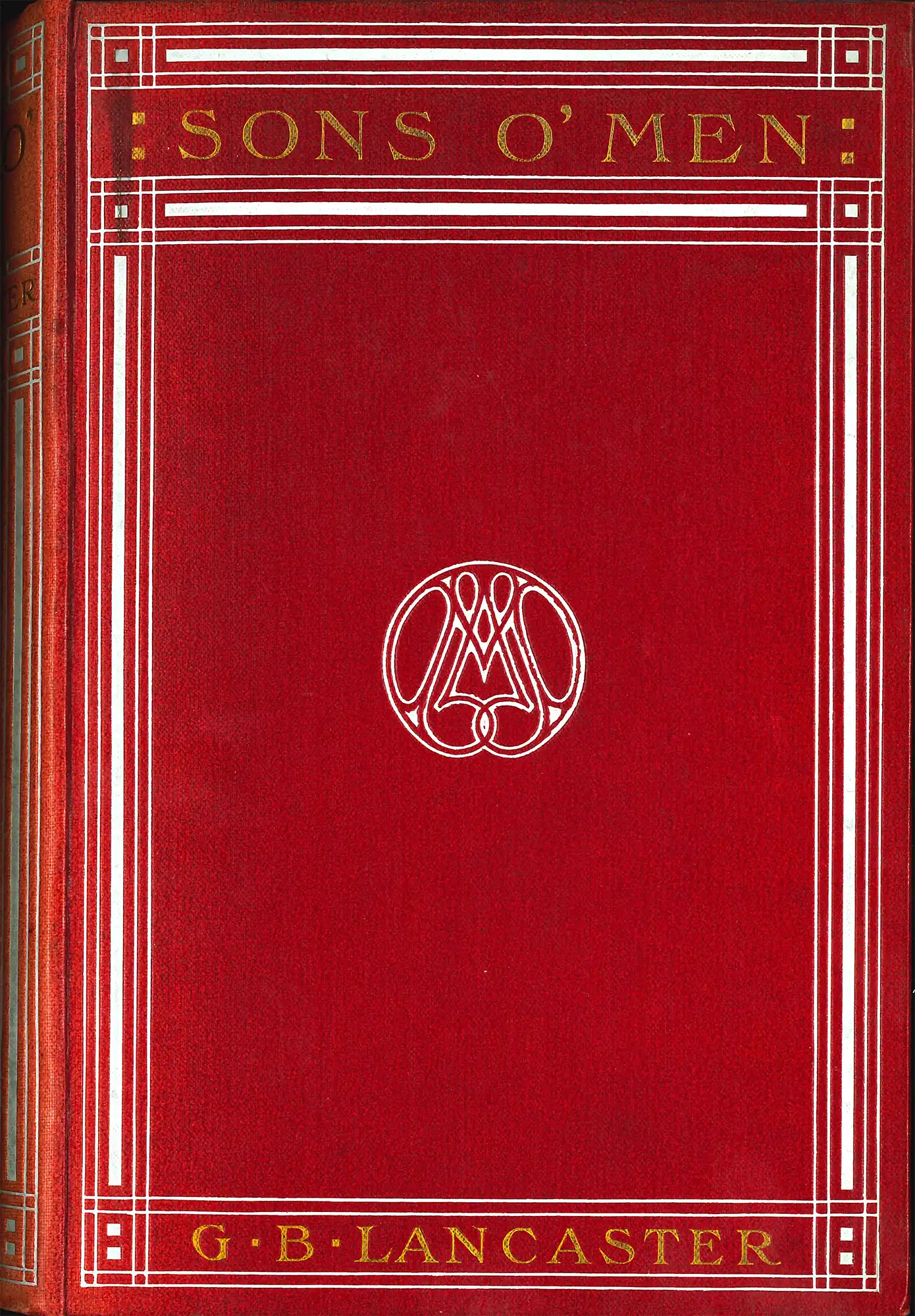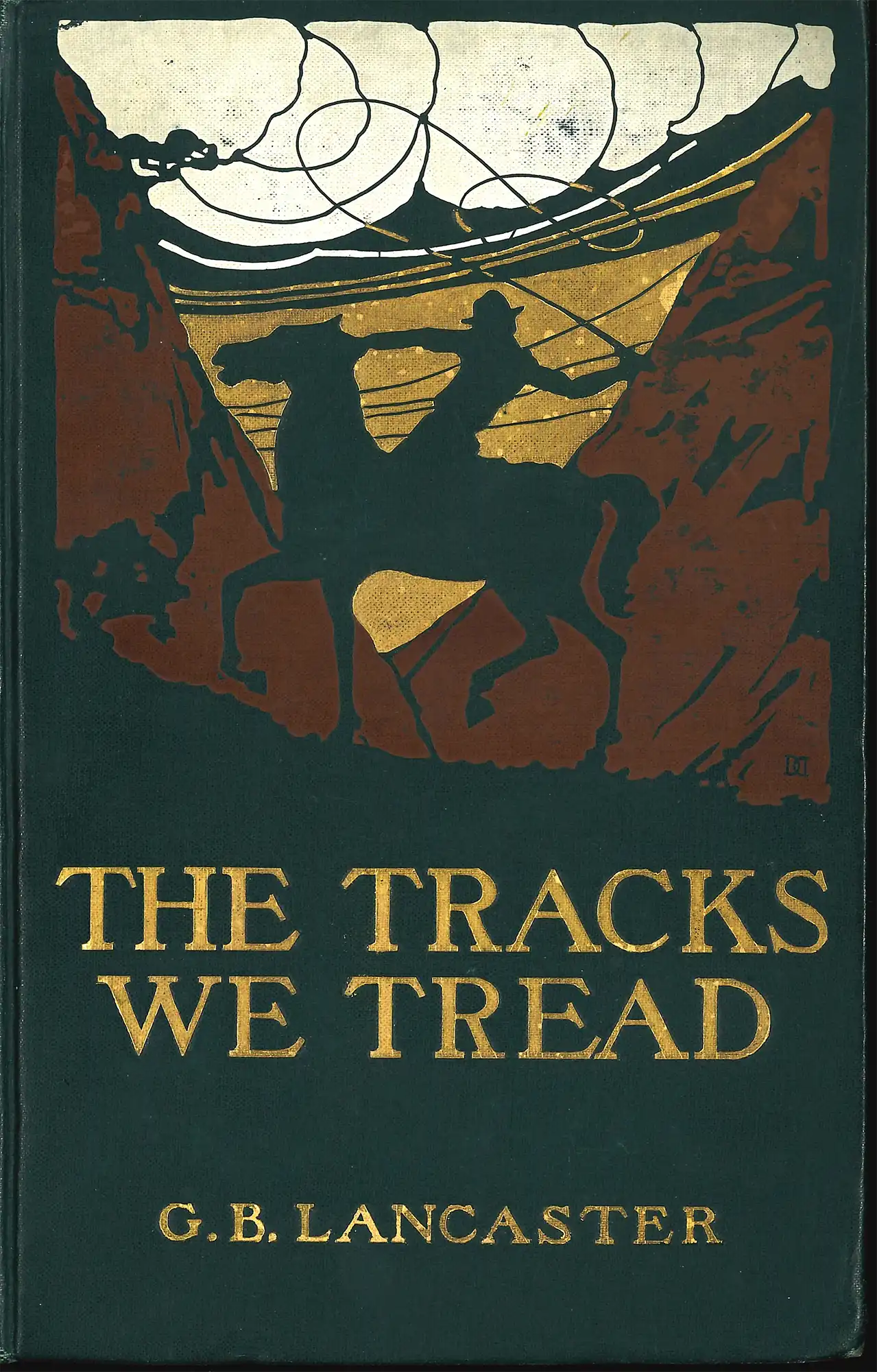Case W5
- G.B. Lancaster (Edith Lyttleton)

G.B. Lancaster. Sons o' men. London: Andrew Melrose, 1904.
Writing under the pseudonym of G.B. Lancaster, Edith Lyttleton (1873-1945) was one of New Zealand’s most widely read popular novelists overseas during the early decades of the 20th century.
Lyttleton was born in Tasmania, but her family, wealthy landowners, emigrated to New Zealand when she was six. Raised on a sheep station at Rakaia, her restricted Victorian upbringing meant she was denied the formal education which her brothers received.
Determined to become a professional writer to achieve financial independence, Lyttleton began publishing stories– but was forbidden by her mother to use her own name. Her fiction was influenced by the adventure stories of Rudyard Kipling and R.L. Stevenson - partly in reaction to the stern literature of ladies’ improvement upon which she was raised.
Her first book, Sons o’ men, a collection of short stories set in the South Island back country, was widely praised in Britain and America, despite readers being puzzled by her New Zealand vernacular. Her following novels, A spur to smite and The tracks we tread, also featured local settings and were popular abroad.
Lyttleton’s later novels are epic colonial romances that feature strong central women characters. Her literary career reflects the tension between writing for a living and becoming the serious novelist she aspired to be.
![G.B. Lancaster. A spur to smite. London: Andrew Melrose, [1905?]](https://www.reedgallery.co.nz/__data/assets/image/0011/668459/W5b.webp)
G.B. Lancaster. A spur to smite. London: Andrew Melrose, [1905?]
Writing under the pseudonym of G.B. Lancaster, Edith Lyttleton (1873-1945) was one of New Zealand’s most widely read popular novelists overseas during the early decades of the 20th century.
Lyttleton was born in Tasmania, but her family, wealthy landowners, emigrated to New Zealand when she was six. Raised on a sheep station at Rakaia, her restricted Victorian upbringing meant she was denied the formal education which her brothers received.
Determined to become a professional writer to achieve financial independence, Lyttleton began publishing stories– but was forbidden by her mother to use her own name. Her fiction was influenced by the adventure stories of Rudyard Kipling and R.L. Stevenson - partly in reaction to the stern literature of ladies’ improvement upon which she was raised.
Her first book, Sons o’ men, a collection of short stories set in the South Island back country, was widely praised in Britain and America, despite readers being puzzled by her New Zealand vernacular. Her following novels, A spur to smite and The tracks we tread, also featured local settings and were popular abroad.
Lyttleton’s later novels are epic colonial romances that feature strong central women characters. Her literary career reflects the tension between writing for a living and becoming the serious novelist she aspired to be.

G.B. Lancaster. The tracks we tread. London: Doubleday, Page, 1907.
Writing under the pseudonym of G.B. Lancaster, Edith Lyttleton (1873-1945) was one of New Zealand’s most widely read popular novelists overseas during the early decades of the 20th century.
Lyttleton was born in Tasmania, but her family, wealthy landowners, emigrated to New Zealand when she was six. Raised on a sheep station at Rakaia, her restricted Victorian upbringing meant she was denied the formal education which her brothers received.
Determined to become a professional writer to achieve financial independence, Lyttleton began publishing stories– but was forbidden by her mother to use her own name. Her fiction was influenced by the adventure stories of Rudyard Kipling and R.L. Stevenson - partly in reaction to the stern literature of ladies’ improvement upon which she was raised.
Her first book, Sons o’ men, a collection of short stories set in the South Island back country, was widely praised in Britain and America, despite readers being puzzled by her New Zealand vernacular. Her following novels, A spur to smite and The tracks we tread, also featured local settings and were popular abroad.
Lyttleton’s later novels are epic colonial romances that feature strong central women characters. Her literary career reflects the tension between writing for a living and becoming the serious novelist she aspired to be.

![G.B. Lancaster. A spur to smite. London: Andrew Melrose, [1905?]](https://www.reedgallery.co.nz/__data/assets/image/0011/668459/W5b.webp)
